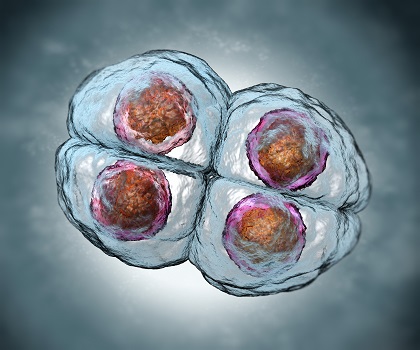An international career to push the frontiers of epigenetics

Related topics
Health Innovation Funding Researchers European Research Council Health, Demographic Change and Wellbeing Francedate: 13/11/2015
Project: http://cordis.europa.eu/project/rcn/1023...
acronym: NUCLEARPOTENCY
See also: CORDIS
She studied the mouse embryo at the very start of its development. Our research aims to understand how, following fertilization, chromatin (a substance made of proteins and DNA that can be found in the nuclei within the cells) drives the cells from a so-called "totipotent" to a "pluripotent" state. Just after fertilization, the totipotent cells are able to generate the whole embryo, the placenta and umbilical cord. But, in the following stages of cell division, they lose this ability and become pluripotent: they progressively specialise into the types of cells that will form the different tissues of the body.
Over the last years we have applied novel techniques that allowed us to identify a protein complex responsible for maintaining the pluripotent state of cells. By inactivating it, we succeeded to induce cells with totipotent features. This result could lead to applications in regenerative medicine and a better understanding of human fertility troubles.
Fertility problems in Europe are very common: 50%-60% of fertilized eggs do not succeed to implant - the woman is not even aware of it. So, what makes the embryo suitable for implantation? With our research, we can help to answer this question and contribute to prevent the problems of implantation in the future.
In the interview she shares her story as a non-European scientist in Europe.
Listen to the interview and read more
Researcher’s webpage
Interesting links:
Early embryonic-like cells are induced by downregulating replication-dependent chromatin assembly
